#calvin bishop
Note
Question for Calvin, do you still like fruit smoothies? :3?

Samantha nooo! Kevinn, Sabb, and Khatch are going to the same hot chocolate store as you and Kylee! Noooo!
13 notes
·
View notes
Photo

💗🩸🐰
attack! for my friend @thenutcrackerus n_n
#eodls#el origen de los shadows#thenutcrackerus#calvin bishop#eyestrain#eye strain#blood#blood cw#oc#original character#original characters#fanart#fan art#team wither#artfight
3 notes
·
View notes
Text

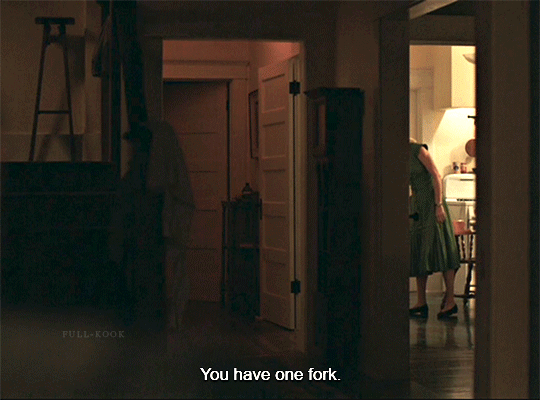

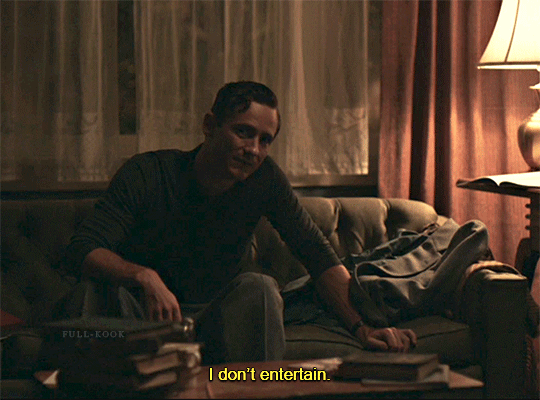
i fear i've discovered a new trope...
— YELENA BELOVA AND KATE BISHOP | HAWKEYE
— ELIZABETH ZOTT AND CALVIN EVANS | LESSONS IN CHEMISTRY
#all i could think about when elizabeth said that was bishova#tvcentric#dailytvgifs#filmtvdaily#televisiongifs#filmtvcentral#tvedit#userbru#userbbelcher#cinematv#hawkeye series#lessons in chemistry#kate bishop#yelena belova#bishova#elizabeth zott#calvin evans#calizabeth#hailee steinfeld#florence pugh#brie larson#lewis pullman#mine#mine/gifs
44 notes
·
View notes
Text
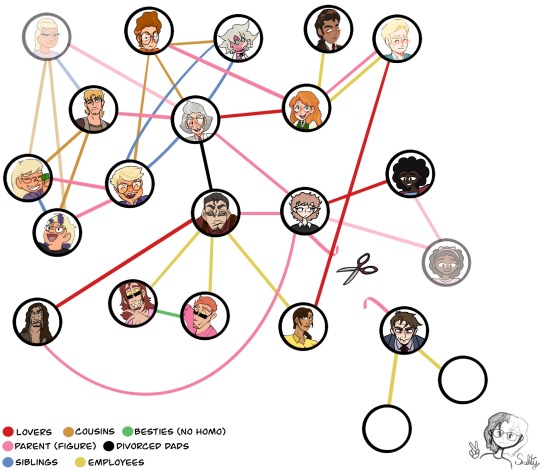
Hi I’ve drawn nothing today, so here’s a little relationship chart I started a while ago and have yet to completely finish
Other ocs: @bigmrfisch @molted-phoenix @the-anxiety-academy @hugohatercore @askcalvinfischoeder
(Not all of these are entirely accurate but I do what I want)
#oc art#sorry not sorry for the amount of tags#bobs burgers oc#calvin fischoeder#felix fischoeder#grover fischoeder#rowan updyke#grace carter#lola carter#erik fischoeder#cassiel alvarez#jacob pierce#bishop & burke#charlotte moreau#fiona fischoeder#athena fischoeder#porsha fischoeder#owen redfield#stirling voigt#lucy bakewell#rainer fischoeder#eric updyke
14 notes
·
View notes
Video
youtube
make a poet Black by McKinley Dixon from the album For my Mama and Anyone who Look Like Her - Director: Jordan Rodericks
#music#mckinley dixon#spacebomb#onirologia#dave cooley#adrian olsen#trey pollard#costantino toth#ali thibodeau#patrick confortola#calvin brown#anthony cavanaugh#stephanie barrett#hyojoo uh#anna bishop#treesa gold#alfred.#music video#jordan rodericks#david muessig#video
20 notes
·
View notes
Text
On Declension in Religion - Richard Cecil
Cecil was born in London. His father (died 1779) and grandfather were scarlet dyers to the British East India Company. His mother (died 1777) was the sister of Benjamin Grosvenor; his father was an Anglican while his mother was a Dissenter, whose family had been devout Christians for generations.
He entered The Queen’s College, Oxford, in 1773, was ordained deacon in 1776 on the title of a…

View On WordPress
#Anglican#Anglican bishop#anglican church#anglican preachers#Calvinism#Calvinist#Christian#Christianity#church#God#Jesus Christ#pastor#preacher#Reformed
0 notes
Text
The Prayer Jesus Taught: “Thy kingdom come, thy will be done, on earth as it is in heaven”
On March 5, 2023, Rev. Dr. Tim Hart-Andersen, the Senior Pastor at Minneapolis’ Westminster Presbyterian Church, delivered the second of his five sermons on different passages of the Lord’s Prayer.[1] This sermon was on the second sentence (in bold) of that Prayer:
“Our Father, who art in heaven, hallowed be thy name. Thy kingdom come, thy will be done, on earth as it is in heaven. Give us this…
View On WordPress
#"Thy kingdom come thy will be done on earth as it is in heaven#Bible (King James version)#Bishop Cyprian of Carthage#Isiah 11:6#Jesus#John Calvin#John the Baptizer#Justo Gonzales#kin-dom#Matthew 5:43-48#Minneapolis Westminster Presbyterian Church#Rev. Dr. Timothy Hart-Andersen#The Lord&039;s Prayer
0 notes
Text
Why People Are Wrong About the Puritans of the English Civil War and New England




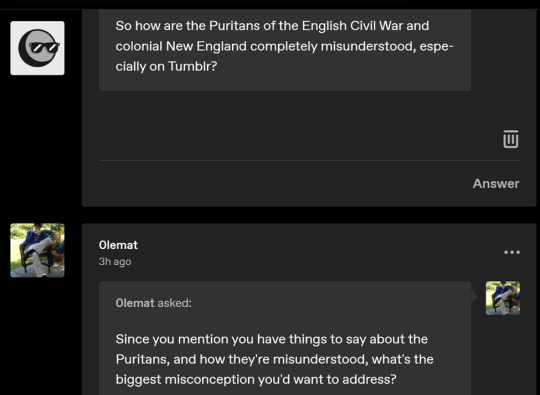
Oh well, if you all insist, I suppose I can write something.
(oh good, my subtle scheme is working...)
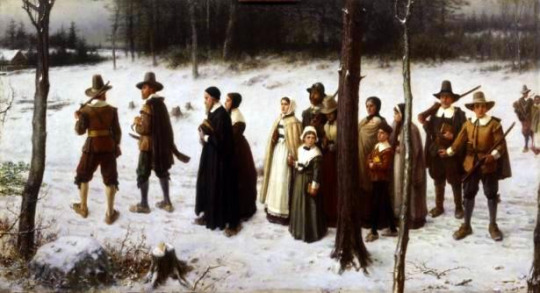
Introduction:
So the Puritans of the English Civil War is something I studied in graduate school and found endlessly fascinating in its rich cultural complexity, but it's also a subject that is popularly wildly misunderstood because it's caught in the jaws of a pair of distorted propagandistic images.
On the one hand, because the Puritans settled colonial New England, since the late 19th century they've been wrapped up with this nationalist narrative of American exceptionalism (that provides a handy excuse for schoolteachers to avoid talking about colonial Virginia and the centrality of slavery to the origins of the United States). If you went to public school in the United States, you're familiar with the old story: the United States was founded by a people fleeing religious persecution and seeking their freedom, who founded a society based on social contracts and the idea that in the New World they were building a city on a hill blah blah America is an exceptional and perfect country that's meant to be an example to the world, and in more conservative areas the whole idea that America was founded as an explicitly Christian country and society.
Then on the other hand, you have (and this is the kind of thing that you see a lot of on Tumblr) what I call the Matt Damon-in-Good-Will-Hunting, "I just read Zinn's People's History of the United States in U.S History 101 and I'm home for my first Thanksgiving since I left for colleg and I'm going to share My Opinions with Uncle Burt" approach. In this version, everything in the above nationalist narrative is revealed as a hideous lie: the Puritans are the source of everything wrong with American society, a bunch of evangelical fanatics who came to New England because they wanted to build a theocracy where they could oppress all other religions and they're the reason that abortion-banning, homophobic and transphobic evangelical Christians are running the country, they were all dour killjoys who were all hopelessly sexually repressed freaks who hated women, and the Salem Witch Trials were a thing, right?
And if anyone spares a thought to examine the role that Puritans played in the English Civil War, it basically short-hands to Oliver Cromwell is history's greatest monster, and didn't they ban Christmas?
Here's the thing, though: as I hope I've gotten across in my posts about Jan Hus, John Knox, and John Calvin, the era of the Reformation and the Wars of Religion that convulsed the Early Modern period were a time of very big personalities who were complicated and not very easy for modern audiences to understand, because of the somewhat oblique way that Early Modern people interpreted and really believed in the cultural politics of religious symbolism.
So what I want to do with this post is to bust a few myths and tease out some of the complications behind the actual history of the Puritans.
Did the Puritans Experience Religious Persecution?
Yes, but that wasn't the reason they came to New England, or at the very least the two periods were divided by some decades. To start at the beginning, Puritans were pretty much just straightforward Calvinists who wanted the Church of England to be a Calvinist Church. This was a fairly mainstream position within the Anglican Church, but the "hotter sort of Protestant" who started to organize into active groups during the reigns of Elizabeth and James I were particularly sensitive to religious symbolism they (like the Hussites) felt smacked of Catholicism and especially the idea of a hierarchy where clergy were a better class of person than the laity.
So for example, Puritans really first start to emerge during the Vestments Controversy in the reign of Edward VI where Bishop Hooper got very mad that Anglican priests were wearing the cope and surplice, which he thought were Catholic ritual garments that sought to enhance priestly status and that went against the simplicity of the early Christian Church. Likewise, during the run-up to the English Civil War, the Puritans were extremely sensitive to the installation of altar rails which separated the congregation from the altar - they considered this to be once again a veneration of the clergy, but also a symbolic affirmation of the Catholic doctrine of transubstantiation.
At the same time, they were not the only religious faction within the Anglican Church - and this is where the religious persecution thing kicks in, although it should be noted that this was a fairly brief but very emotionally intense period. Archbishop William Laud was a leading High Church Episcopalian who led a faction in the Church that would become known as Laudians, and he was just as intense about his religious views as the Puritans were about his. A favorite of Charles I and a first advocate of absolutist monarchy, Laud was appointed Archbishop of Canturbury in 1630 and acted quickly to impose religious uniformity of Laudian beliefs and practices - ultimately culminating in the disastrous decision to try imposing Episcopalianism on Scotland that set off the Bishop's Wars.
The Puritans were a special target of Laud's wrath: in addition to ordering the clergy to do various things offensive to Puritans that he used as a shibboleth to root out clergy with Puritan sympathies and fire them from their positions in the Church, he established official religious censors who went after Puritan writers like William Prynne for seditious libel and tortured them for their criticisms of his actions, cropping their ears and branding them with the letters SL on their faces. Bringing together the powers of Church and State, Laud used the Court of Star Chamber (a royal criminal court with no system of due process) to go after anyone who he viewed as having Puritan sympathies, imposing sentences of judicial torture along the way.
It was here that the Puritans began to make their first connections to the growing democratic movement in England that was forming in opposition to Charles I, when John Liliburne the founder of the Levellers was targeted by Laud for importing religious texts that criticized Laudianism - Laud had him repeatedly flogged for challenging the constitutionality of the Star Chamber court, and "freeborn John" became a martyr-hero to the Puritans.
When the Long Parliament met in 1640, Puritans were elected in huge numbers, motivated as they were by a combination of resistance to the absolutist monarchism of Charles I and the religious policies of Archbishop Laud - who Parliament was able to impeach and imprison in the Tower of the London in 1641.
This relatively brief period of official persecution that powerfully shaped the Puritan mindset was nevertheless disconnected from the phenomena of migration to New England - which had started a decade before Laud became Archbishop of Canterbury and continued decades after his impeachment.
The Puritans Just Wanted to Oppress Everyone Else's Religion:
This is the very short-hand Howard Zinn-esque critique we often see of the Puritan project in the discourse, and while there is a grain of truth to it - in the Massachusetts Bay Colony, the Congregational Church was the official state religion, no other church could be established without permission from the Congregational Church, all residents were required to pay taxes to support the Congregational Church, and only Puritans could vote. Moreover, there were several infamous incidents where the Puritan establishment put Anne Hutchinson on trial and banished her, expelled Roger Williams, and hanged Quakers.
Here's the thing, though: during the Early Modern period, every single side of every single religious conflict wanted to establish religious uniformity and oppress the heretics: the Catholics did it to the Protestants where they could mobilize the power of the Holy Roman Emperor against the Protestant Princes, the Protestants did it right back to the Catholics when Gustavus Adolphus' armies rolled through town, the Lutherans and the Catholics did it to the Calvinists, and everybody did it to the Anabaptists.
That New England was founded as a Calvinist colony is pretty unremarkable, in the final analysis. (By the by, both Hutchinson and Williams were devout if schismatic Puritans who were firmly of the belief that the Anglican Church was a false church.) What's more interesting is how quickly the whole religious project broke down and evolved into something completely different.
Essentially, New England became a bunch of little religious communes that were all tax-funded, which is even more the case because the Congregationalist Church was a "gathered church" where the full members of the Church (who were the only people allowed to vote on matters involving the church, and were the only ones who were allowed to be given baptism and Communion, which had all kinds of knock-on effects on important social practices like marriages and burials) and were made up of people who had experienced a conversion where they can gained an assurance of salvation that they were definitely of the Elect. You became a full member by publicly sharing your story of conversion (which had a certain cultural schema of steps that were supposed to be followed) and having the other full members accept it as genuine.
This is a system that works really well to bind together a bunch of people living in a commune in the wilderness into a tight-knit community, but it broke down almost immediately in the next generation, leading to a crisis called the Half-Way Covenant.
The problem was that the second generation of Puritans - all men and women who had been baptized and raised in the Congrgeationalist Church - weren't becoming converted. Either they never had the religious awakening that their parents had had, or their narratives weren't accepted as genuine by the first generation of commune members. This meant that they couldn't hold church office or vote, and more crucially it meant that they couldn't receive the sacrament or have their own children baptized.
This seemed to suggest that, within a generation, the Congregationalist Church would essentially define itself into non-existence and between the 1640s and 1650s leading ministers recommended that each congregation (which was supposed to decide on policy questions on a local basis, remember) adopt a policy whereby the children of baptized but unconverted members could be baptized as long as they did a ceremony where they affirmed the church covenant. This proved hugely controversial and ministers and laypeople alike started publishing pamphlets, and voting in opposing directions, and un-electing ministers who decided in the wrong direction, and ultimately it kind of broke the authority of the Congregationalist Church and led to its eventual dis-establishment.
The Puritans are the Reason America is So Evangelical:
This is another area where there's a grain of truth, but ultimately the real history is way more complicated.
Almost immediately from the founding of the colony, the Puritans begin to undergo mutation from their European counterparts - to begin with, while English Puritans were Calvinists and thus believed in a Presbyterian form of church government (indeed, a faction of Puritans during the English Civil War would attempt to impose a Presbyterian Church on England.), New England Puritans almost immediately adopted a congregationalist system where each town's faithful would sign a local religious constitution, elect their own ministers, and decide on local governance issues at town meetings.
Essentially, New England became a bunch of little religious communes that were all tax-funded, which is even more the case because the Congregationalist Church was a "gathered church" where the full members of the Church (who were the only people allowed to vote on matters involving the church, and were the only ones who were allowed to be given baptism and Communion, which had all kinds of knock-on effects on important social practices like marriages and burials) and were made up of people who had experienced a conversion where they can gained an assurance of salvation that they were definitely of the Elect. You became a full member by publicly sharing your story of conversion (which had a certain cultural schema of steps that were supposed to be followed) and having the other full members accept it as genuine.
This is a system that works really well to bind together a bunch of people living in a commune in the wilderness into a tight-knit community, but it broke down almost immediately in the next generation, leading to a crisis called the Half-Way Covenant.
The problem was that the second generation of Puritans - all men and women who had been baptized and raised in the Congrgeationalist Church - weren't becoming converted. Either they never had the religious awakening that their parents had had, or their narratives weren't accepted as genuine by the first generation of commune members. This meant that they couldn't hold church office or vote, and more crucially it meant that they couldn't receive the sacrament or have their own children baptized.
This seemed to suggest that, within a generation, the Congregationalist Church would essentially define itself into non-existence and between the 1640s and 1650s leading ministers recommended that each congregation (which was supposed to decide on policy questions on a local basis, remember) adopt a policy whereby the children of baptized but unconverted members could be baptized as long as they did a ceremony where they affirmed the church covenant. This proved hugely controversial and ministers and laypeople alike started publishing pamphlets, and voting in opposing directions, and un-electing ministers who decided in the wrong direction, and accusing one another of being witches. (More on that in a bit.)
And then the Great Awakening - which to be fair, was a major evangelical effort by the Puritan Congregationalist Church, so it's not like there's no link between evangelical - which was supposed to promote Congregational piety ended up dividing the Church and pretty soon the Congregationalist Church is dis-established and it's safe to be a Quaker or even a Catholic on the streets of Boston.
But here's the thing - if we look at which denominations in the United States can draw a direct line from themselves to the Congregationalist Church of the Puritans, it's the modern Congregationalists who are entirely mainstream Protestants whose churches are pretty solidly liberal in their politics, the United Church of Christ which is extremely cultural liberal, and it's the Unitarian Universalists who are practically issued DSA memberships. (I say this with love as a fellow comrade.)
By contrast, modern evangelical Christianity (although there's a complicated distinction between evangelical and fundamentalist that I don't have time to get into) in the United States is made up of an entirely different set of denominations - here, we're talking Baptists, Pentacostalists, Methodists, non-denominational churches, and sometimes Presbyterians.
The Puritans Were Dour Killjoys Who Hated Sex:
This one owes a lot to Nathaniel Hawthorne's Scarlet Letter.
The reality is actually the opposite - for their time, the Puritans were a bunch of weird hippies. At a time when most major religious institutions tended to emphasize the sinful nature of sex and Catholicism in particular tended to emphasize the moral superiority of virginity, the Puritans stressed that sexual pleasure was a gift from God, that married couples had an obligation to not just have children but to get each other off, and both men and women could be taken to court and fined for failing to fulfill their maritial obligations.
The Puritans also didn't have much of a problem with pre-marital sex. As long as there was an absolute agreement that you were going to get married if and when someone ended up pregnant, Puritan elders were perfectly happy to let young people be young people. Indeed, despite the objection of Jonathan Edwards and others there was an (oddly similar to modern Scandinavian customs) old New England custom of "bundling," whereby a young couple would be put into bed together by their parents with a sack or bundle tied between them as a putative modesty shield, but where everyone involved knew that the young couple would remove the bundle as soon as the lights were turned out.
One of my favorite little social circumlocutions is that there was a custom of pretending that a child clearly born out of wedlock was actually just born prematurely to a bride who was clearly nine months along, leading to a rash of surprisingly large and healthy premature births being recorded in the diary of Puritan midwife Martha Ballard. Historians have even applied statistical modeling to show that about 30-40% of births in colonial America were pre-mature.
But what about non-sexual dourness? Well, here we have to understand that, while they were concerned about public morality, the Puritans were simultaneously very strict when it came to matters of religion and otherwise normal people who liked having fun. So if you go down the long list of things that Puritans banned that has landed them with a reputation as a bunch of killjoys, they usually hide some sort of religious motivation.
So for example, let's take the Puritan iconoclastic tendency to smash stained glass windows, whitewash church walls, and smash church organs during the English Civil War - all of these things have to do with a rejection of Catholicism, and in the case of church organs a belief that the only kind of music that should be allowed in church is the congregation singing psalms as an expression of social equality. At the same time, Puritans enjoyed art in a secular context and often had portraits of themselves made and paintings hung on their walls, and they owned musical instruments in their homes.
What about the wearing nothing but black clothing? See, in our time wearing nothing but black is considered rather staid (or Goth), but in the Early Modern period the dyes that were needed to produce pure black cloth were incredibly expensive - so wearing all black was a sign of status and wealth, hence why the Hapsburgs started emphasizing wearing all-black in the same period. However, your ordinary Puritan couldn't afford an all-black attire and would have worn quite colorful (but much cheaper) browns and blues and greens.
What about booze and gambling and sports and the theater and other sinful pursuits? Well, the Puritans were mostly ok with booze - every New England village had its tavern - but they did regulate how much they could serve, again because they were worried that drunkenness would lead to blasphemy. Likewise, the Puritans were mostly ok with gambling, and they didn't mind people playing sports - except that they went absolutely beserk about drinking, gambling, and sports if they happened on the Sabbath because the Puritans really cared about the Sabbath and Charles I had a habit of poking them about that issue. They were against the theater because of its association with prostitution and cross-dressing, though, I can't deny that. On the other hand, the Puritans were also morally opposed to bloodsports like bear-baiting, cock-fighting, and bare-knuckle boxing because of the violence it did to God's creatures, which I guess makes them some of the first animal rights activsts?
They Banned Christmas:
Again, this comes down to a religious thing, not a hatred of presents and trees - keep in mind that the whole presents-and-trees paradigm of Christmas didn't really exist until the 19th century and Dickens' Christmas Carol, so what we're really talking about here is a conflict over religious holidays - so what people were complaining about was not going to church an extra day in the year. I don't get it, personally.
See, the thing is that Puritans were known for being extremely close Bible readers, and one of the things that you discover almost immediately if you even cursorily read the New Testament is that Christ was clearly not born on December 25th. Which meant that the whole December 25th thing was a false religious holiday, which is why they banned it.
The Puritans Were Democrats:
One thing that I don't think Puritans get enough credit for is that, at a time when pretty much the whole of European society was some form of monarchist, the Puritans were some of the few people out there who really committed themselves to democratic principles.
As I've already said, this process starts when John Liliburne, an activist and pamphleteer who promoted the concept of universal human rights (what he called "freeborn rights"), took up the anti-Laudian cause and it continued through the mobilization of large numbers of Puritans to campaign for election to the Long Parliament.
There, not only did the Puritans vote to revenge themselves on their old enemy William Laud, but they also took part in a gradual process of Parliamentary radicalization, starting with the impeachment of Strafford as the architect of arbitrary rule, the passage of the Triennal Acts, the re-statement that non-Parliamentary taxation was illegal, the Grand Remonstrance, and the Militia Ordinance.
Then over the course of the war, Puritans served with distinction in the Parliamentary army, especially and disproportionately in the New Model Army where they beat the living hell out of the aristocratic armies of Charles I, while defying both the expectations and active interference of the House of Lords.
At this point, I should mention that during this period the Puritans divided into two main factions - Presbyterians, who developed a close political and religious alliance with the Scottish Covenanters who had secured the Presbyterian Church in Scotland during the Bishops' Wars and who were quite interested in extending an established Presbyterian Church; and Independents, who advocated local congregationalism (sound familiar) and opposed the concept of established churches.
Finally, we have the coming together of the Independents of the New Model Army and the Leveller movement - during the war, John Liliburne had served with bravery and distinction at Edgehill and Marston Moore, and personally capturing Tickhill Castle without firing a shot. His fellow Leveller Thomas Rainsborough proved a decisive cavalry commander at Naseby, Leicester, the Western Campaign, and Langport, a gifted siege commander at Bridgwater, Bristol, Berkeley Castle, Oxford, and Worcester.
Thus, when it came time to hold the Putney Debates, the Independent/Leveller bloc had both credibility within the New Model Army and the only political program out there. Their proposal:
redistricting of Parliament on the basis of equal population; i.e one man, one vote.
the election of a Parliament every two years.
freedom of conscience.
equality under the law.
In the context of the 17th century, this was dangerously radical stuff and it prompted Cromwell and Fairfax into paroxyms of fear that the propertied were in danger of being swamped by democratic enthusiasm - leading to the imprisonment of Lilburne and the other Leveller leaders and ultimately the violent suppression of the Leveller rank-and-file.
As for Cromwell, well - even the Quakers produced Richard Nixon.
#history#puritans#calvinism#english civil war#oliver cromwell#the stupid meme about christmas#new england#protestantism
422 notes
·
View notes
Note
Hiiiiii, I was wondering if you could write something about the character Kate Bishop? About her falling in love with a firefighter who is eight years older than her, and they go on dates and then become boyfriend and girlfriend, and they have a lovely relationship, please and thank you. :)
Sure thing!! I made Kate just a touch older (25, making Y/N 33). I don't normally write M!Reader- actually this the first time I'm writing x Reader fiction in general, so sorry if I screw anything up!! Normally I write character x character LMAO. Hope u enjoy!
It's a Goddamn Blaze in the Dark

Ship: Kate Bishop x Firefighter!M!Reader
Word Count: ~1k
Desc.: Being a firefighter in New York City isn't exactly what you'd call quiet. But you'd be damned if you could've guessed half the shit that follows Kate Bishop stumbling into your life.
Masterlist
9:15pm, April 19th
The building was already engulfed in flames by the time your ladder truck finally rolled around. Ambulances were amuck in the street, bussing out civilians half as quick as they flooded in.
"Y/N!"
You whip around to your Lieutenant, Hobbs, as you pull your respiratory kit over your shoulders.
"EMS is way overrun, you're reassigned. Take the medical kit, Calvin's meeting you on the East side of the building," Hobbs says quickly, rounding behind you to pull the tank off of your back.
"You got it, Hobbs. I'll radio when I'm over," you reply, taking the medical bag off of the truck and hauling it over your shoulder. Glancing to the building, you decide to leave your bunker gear and helmet on. Glass was blowing out across the facade, and if the acrid smell was anything to go by, there might be some debris to dodge.
Side-stepping a few EMS as they evacuate patients, you start rounding the building. Even through your gear, you can feel the heat radiating off of the brick and mortar of the building. The nearer firehouse had been battling this one for damn near an hour before calling in your crew for backup.
"Calvin! Incoming!" you shout as you round the building into the next street. A makeshift medical tent had been established outside of the collapse zone, and the street was closed off by police at both ends of the block. It was one of the only times you were thankful for them on scene.
An explosion crashes out above you from inside the top floors of the structure. Reflexively, you duck, ears ringing slightly as you recover. You squint against the light of the fire, looking desperately for its source.
Through the smoke billowing out of the foyer door, you see a pair of silhouettes, one supporting the other. Ignoring Calvin calling out for you, you dart forward through the doors. The heat of the room hits you first, and then the distinct realisation that you're not wearing your respirator.
You see them, just barely, and you reach out to take the weight of the casualty. Taking them in a fireman carry, you take the arm of the other, heaving the pair out of the door. Clean air has never smelled so good.
"Go! Keep going forward," you say hastily to the walking one. "Calvin! I got two casualties, prep medical! Smoke inhalation, among other things!"
Calvin's already on his way over, taking who you now see is a woman out of your arms, putting her on a medical bed and placing a mask over her face. You sweep your surrounds quickly, taking in the scene more fully this time. You spot your other casualty, resting her hands on her knees to catch her breath. She was in an odd purple costume, with a quiver and bow slung across her back.
"Ma'am, I need you to keep walking forward to the medical tent," you say, approaching her.
"What? No! No, no, I'm fine, I swear!" She's rather insistent, coughing a few times. On her shoulder was a scorched part of her uniform. Rather than argue, you take her forearm, leading her away from the debris zone.
"What's your name?" you ask, unzipping your medical bag to pull out antiseptic, gauze, and a few other tools. The woman watches you carefully, almost lost in her inner monologue for a moment.
"Ka- I mean- Hawkeye! I'm Hawkeye!" she rushes out, interrupting herself. You huff a laugh, reaching out to inspect her shoulder.
"I thought Hawkeye was a dude." You'd seen him recently with a sidekick, but you were doubtful they would both choose the same name.
"Yea, well he is... But I'm the other one," she mumbles, wincing slightly as the antiseptic makes contact with her burn.
"You're lucky this isn't a bad burn. Shouldn't have gone into that building, hero or not," you say, laying the gauze on top and using a bandage to affix it more firmly to the site. "I'm gonna check your throat real quick with this light. You cool with that?"
She nods, opening her mouth. You click the medical light on, taking your helmet off to get closer without smacking her in the head. God knows you've done that too many times. Thankfully, it didn't look raw.
"Looks like you're all clear, you're a lucky one, Hawkeye," you say, placing your equipment back into your bag and zipping it up. You glance over to her, noticing how she looks at you; with a strange sort of transfixion.
"I, uh-" she starts.
Calvin calls out your name from the street, where fresh casualties were being evacuated from the building. You swear under your breath.
"Sorry- I'm gonna need to go..." You trail off, as in the small amount of time you looked away, your mysterious Hawkeye was gone. In her place was a small note.
Call me
(phone number)
- Hawkeye
You tuck the note into your jacket pocket, before running over to where Calvin was ushering away civilians.
12pm, April 30th
The cafe you were currently situated in was a rather lovely hole-in-the-wall place, about a stone's throw away from Central Park. You were waiting on your date; your second date, actually, with a lovely girl named Kate Bishop. The very same girl you had helped out during a structure fire on the 19th.
The bell to the cafe chimed, and you looked up from your table. You smile as you catch Kate's eye, beckoning her over.
"It's so good to see you again!"
◢◤◢◤◢◤◢◤◢◤◢◤◢◤
I don't normally write fics like this, so if y'all would like a part 2, lmk!!
17 notes
·
View notes
Text
Today in Christian History
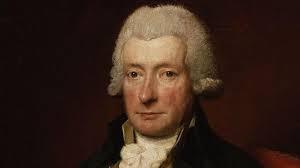
Today is Thursday, April 25th, 2024. It is the 116th day of the year in the Gregorian calendar; Because it is a leap year, 250 days remain until the end of the year.
62: Death of Mark the Gospel writer while imprisoned in Alexandria in the eighth year of Nero, according to Vetus martyrologium romanum (an old Roman collation of martyr accounts).
799: Pope Leo III is attacked, his eyes stabbed, and his tongue torn. He recovers and later crowns Charlemagne as emperor.
1449: The ineffectual Council of Basel ends.
1479: Death of Sylvester of Obnorsk, a Russian Orthodox hermit who had lived off roots and bark. Eventually he had established a monastery.
1564: John Calvin, reformer of Geneva, dictates his last will and testament to notary Peter Chenalat.
1595: Death from a fever in the convent of St. Onofrio of Italian poet Torquato Tasso. Ironically, he was supposed to receive a laurel from the pope on this day in recognition of his epic poems, among which Jerusalem Delivered had been the most acclaimed.
1735: Death at Epworth, England, of Samuel Wesley, curate, author, and father of Methodist revival leaders John and Charles Wesley.
1800: Death at East Dereham, Norfolk, England, of English poet William Cowper (pictured above). Despite lifelong depression, he had produced enduring hymns, including, “Oh For a Closer Walk with God” and “There is a Fountain Filled with Blood.” Dementia had led him to believe he was damned.
1879: Consecration of J. B. Lightfoot as Bishop of Durham. A renowned English New Testament scholar, he had left Cambridge and a life of scholarship to devote the remaining ten years of his life to church administration.
1889: Death at Mt. Pleasant, Michigan, of Anzentia Igene Perry Chapman. A member of the Free Methodist Church, she wrote a number of hymns, including, “Thou Shalt Rest at Eve,” and “We’ll Never Say Goodbye.”
1917: Ordination of Paul Sasaki as a priest in the Anglican Church in Japan. He will become bishop of Nippon Sei Ko Kei (an independent church organization within the Anglican Communion), and suffer imprisonment for his refusal to bring Nippon Sei Ko Kei under the authority of a government-ordered church coalition.
6 notes
·
View notes
Text
I was tagged by @summerwave @jiminsproof @epiphanytear to do this test and share the results! This was literally so long ago I don’t even remember 😂

I don’t know a lot of these characters (except Kif that made me laugh so hard 😂😂😂) but I was happy to see I share a lot with the people who tagged me 💜💜💜
Some other ones that got me excited were:
40. Samwise Gamgee (LOTR)
50. Burton Guster (Psych)
61. George Michael Bluth (Arrested Development)
92. Tina Belcher (Bob's Burgers) as if i could write fanfic like her 😭
97. Amy Santiago (B99)
106. Liz Lemon (30 Rock)
115. Calvin's mom (Calvin & Hobbes)
121. Ben Wyatt (Parks and Rec)
130. Charles Boyle (B99)
132. Ted Mullens (Schitt's Creek)
137. Winston Bishop (New Girl)
151. Rom (Star Trek DS9)
152. Miles O'Brien (Star Trek DS9)
159. Geordi La Forge (Star Trek TNG)
160. Chidi Anagonye (The Good Place)
180. Harry Kim (Star Trek Voyager)
200. Amy Sosa (Superstore)
Okay that's enough. I for sure see a pattern here and I love it :))))
Tagging @lauraperfectinsanity @cosmicdreamgrl @cordiallyfuturedwight @sevencoloredstar @raplinenthusiasts (if some of you already did this sorry again this was so long ago 😂)
10 notes
·
View notes
Note
Hellooo
I'm halfway through rereading post·mor·tem for... I don't know how many times already and my friend has already finished it and is dying because of how good it is. The Thranto brainrot is too real, good job, you are one of the best fic writers out there, we will send you the hospital bills.
We were wondering if you listened to any music while writing it or if you have any specific song that helps your inspiration for this ship.
Thank you for writing this, I'm going to pile up some kleenex for when I finish it.
thank u anon, i'm so glad you both like the fic!!!!!
i did listen to music while writing, in fact i can't write anything without music and thus tend to have a playlist for pretty much every one of my fics! here's the one for postmortem:
🪐 post·mor·tem playlist 🪐
yes it's chronological, yes i am aware it's maybe a bit too detailed, and yes if you wanna know exactly which song fits where i left it all under the cut
✨ file 01 // an act of kindness - bastille
tentative friendship
hiding - florence + the machine
they nearly die and start pinning hard
half alive - amber run
violet city - mansionair
they slowly realize they are doomed
hardest of hearts - florence + the machine
thanatos (end of us) - j. maya
thrawn sends eli away
a memory away - matt maeson
✨ file 02 // remind me - bastille
thrawn knows he fucked up but tries to justify it/turn it around
hollow crown - ellie goulding
state lines - novo amor [resurfaced memories]
two evils - bastille
good day lieutenant vanto and aftermath
mercy - shawn mendes
make up your mind - florence + the machine
thrawn admits to himself he lost just as he realizes he loves eli
in between - linkin park
they make up but it still all sucks
one last night - vaults
we have it all - pim stones
✨ borika interlude (eli scenes)
eli struggles with thrawn going MIA
saudade, saudade - maro
✨ file 03 // don’t let go (love) - bastille
i.
ezra and thrawn try to survive together
solitude - M83, felsmann + tiley
i know the end - phoebe bridgers
long & lost - florence + the machine
ezra and thrawn scream into the forest
my tears are becoming a sea - M83
thrawn tries to hold on to the thought of eli while captured
the night we met - amber run
they get rescued
blood // water - grandson
ii.
eli is fucking pissed at thrawn
what kind of man - florence + the machine
blender - 5 seconds of summer
would’ve, could’ve, should’ve - taylor swift
thrawn tries to wrap his head around eli’s anger with the help of mak’ro and broika’s
high water - bishop briggs
the hearse - matt maeson
rescuing thalias and aftermath
love me - wide awake, jacob banks
foreign tongues - crywolf [bathroom scene]
they finally make up
constellations - jade lemac
iii.
they fall into each other's orbit again
war - chance pena
thrawn has to say goodbye to ezra and borika
still - noah kahan
they struggle with their guilt and trauma
daylight - david kushner
final stand
gravitational forces - itg studios
how deep is your love? Mashup - hans zimmer, calvin harris, hozier
they heal and rebuild [thrass grave & tava blossoms]
evergreen - richy mitch & the coal miners
surprise wedding
everything everywhere - noah kahan
they decide to infiltrate the empire again
as it was - hozier
#thranto#postmortem#yes i am aware i'm a bit insane about playlists#i just listen to music pretty much 24/7 so#idk it's bound to happen#soph answers asks
39 notes
·
View notes
Text
But where Luther failed, Calvin won the day. Calvin's creed was one fit for the boldest of the bourgeoisie of his time. His predestination doctrine was the religious expression of the fact that in the commercial world of competition success or failure does not depend upon a man's activity or cleverness, but upon circumstances uncontrollable by him. It is not of him that willeth or of him that runneth, but of the mercy of unknown superior economic powers; and this was especially true at a period of economic revolution, when all old commercial routes and centres were replaced by new ones, when India and America were opened to the world, and when even the most sacred economic articles of faith – the value of gold and silver – began to totter and to break down. Calvin's church constitution of God was republicanized, could the kingdoms of this world remains subject to monarchs, bishops, and lords? While German Lutheranism became a willing tool in the hands of princes, Calvinism founded a republic in Holland, and active republican parties in England, and, above all, Scotland.
Frederick Engels
Socialism: Utopian and Scientific
1892 English Edition Introduction
[History (the role of Religion) in the English middle-class]
6 notes
·
View notes
Text
By: Joel Kotkin
Published: Jun 21, 2023
In an age of darkness, glimpses of light are rare — but all the brighter for it. As the censorious progressivism embraced by Joe Biden and much of his Democratic party grows into an increasingly pervasive quasi-religion, ordinary people are finding ways to push back. Like democratic Leftists in the Cold War, old-style liberals are becoming a key force in challenging today’s new orthodoxies.
And this rising tide of liberal apostasy, coupled with a growing pushback from grassroots businesses and consumers, represents a far more profound challenge to the established order than the one routinely mounted by conservatives. In the Renaissance, the impetus for change did not come from Jews, Muslims, devil-worshippers or pagans, but devout Christians such as Erasmus, Luther and Calvin.
In our era, the most powerful critics of progressive theology once again tilt to the Left: Andrew Sullivan, Matt Taibbi, Ruy Teixeira, to name but three. Their apostasy rises to uphold the basic principles once central to liberalism — equality of opportunity, free speech, and open inquiry. This battle is also reminiscent of the struggle waged by the Renaissance critics of the all-powerful Catholic Church. Today, it’s not bishops or popes who seek control, but the oligarchs and their media platforms which, with the sometimes exception of Twitter, favour a censorship regime that brands dissidents largely as purveyors of “misinformation”.
Like earlier apostates, religious or scientific, ours face an uphill struggle. They must contend with forces within the C-suite and, particularly, academia, where even the sciences are now constrained by ideological edicts. This is where the money flows, often to a host of non-profits, some secretly funded, that spread the gospels of censorship, police reduction, indoctrination in schools and an apocalyptic environmental agenda. One problem the apostates face is therefore an obvious one: despite often impressive media resumes, their research rarely makes it into the mainstream, their voices being carried no further than Twitter, Substack and the more broad-minded corners of the media.
This pushback comes at a propitious time, extending beyond a few dissident intellectuals to the grassroots and business moguls such as Elon Musk, Ken Griffin and Bernie Marcus. The latter, in particular, understand that the new progressive orthodoxy undermines the entire system by embracing anti-capitalist memes and reducing the role of merit in a system built around it. And so a critical front has been the rebellion against ESG (environmental, social, governance) standards. Many US states have moved to take their pension funds out of firms that embrace this ideology; some investment houses, notably Vanguard and upstart Thrive Asset Management, are eschewing corporate policies that stress climate change and other issues over fiduciary obligation to investors.. The fact that returns to ESG firms have been poor, when compared with those tied to fossil fuels and basic industries, could presage a further awakening among financial and business leaders that the balance sheet, rather than ideological back-slapping, constitutes the primary mission of business.
More important still, apostasy is also rising among the general population. The pressure for reparations, for example, is opposed by upwards of two-thirds of Americans. All major ethnic groups, notes Pew, reject race quotas, including African-Americans; overall, almost three in four oppose this, as do a majority of both Democrats and Republicans.
In the race debate, the role of black apostates is particularly critical. As John McWhorter has long argued, preferential policies encourage “therapeutic alienation” among black people and other minorities — leading some to adopt a mentality of “anger and scapegoating”, instead of doing “the work needed for success”. In the bizarre world of modern progressivism, any opposition to this agenda is “racist”, even if it comes from people who support equal rights and access to opportunity. Critics of race-based discrimination such as McWhorter and Glenn Loury are far from Klansmen incarnate.
Similarly, assaults on European culture have proven unlikely to win over the masses in these countries, the bulk of whom still express some pride in their heritage. The notion that Western societies are eternally oppressive and racist seems a bit of a stretch given that millions of Africans, Middle Easterners, and south Asians continue to flock to these countries, largely to experience higher levels of economic and cultural freedom. The progressive assault on heritage also is likely to stir up far-Right sentiment, as we can see in France, Denmark, and, perhaps most dangerously, Germany.
The ever-more edgy cultural agenda of the Left, particularly its obsession with transgenderism, provides additional fuel for apostasy. People generally believe in the existence of two genders, and are hostile to efforts to impose either sexual or explicitly political curricula on young people. The idea of parental rights, for example — making sure parents are informed if their child decides to transition — has broad support, including nearly four-fifths of Californians, reflecting what appear to be national trends. In defiance of the transgender advocacy from the White House down, the opposition to sporting categories based on gender, rather than sex, has actually grown over the last two years, with even more Democrats now opposed to the practice than in favour.
Critically — and, no doubt, shocking for some — many opposing the progressive agenda are themselves minorities. In Britain and Europe, for example, Muslims tend to be more religious and socially conservative than whites, and Indians, particularly Hindus, have been drifting Right-wards for a generation. In America, surveys show that foreign-born Americans are also more culturally conservative than the native-born.
Perhaps the most economically significant apostasy relates to climate-change policy. Despite growing moves to censor contrary opinions, here the liberal apostates are not classic deniers or oil company executives, but respected scientists such as former Obama advisor Steve Koonin, and climate scientists Roger Pielke and Judith Curry. Even some environmentalists — including Greenpeace co-founder Patrick Moore — openly denounce “Net Zero” and “de-growth” policies as both impractical and deeply flawed. They recognise that these policies are already leading to the immiseration of poorer people, particularly in California and Germany. They are not calling for an end to climate change mitigation, but for policies that are more realistic and less economically damaging for the working and middle classes.
And then there are grassroots protests at European governments’ attempts to impose emission reductions on farmers and ban chemical fertilisers — regulatory moves at a time when food prices are rising throughout the West. Efforts to reduce agricultural output, now being suggested in the United States and Canada, also could have dire consequences for billions in the developing world. It’s hardly surprising, then, that there is growing scepticism about climate policies globally; in surveys, it barely registers as a priority for people either in Africa or the US where, according to Gallup, climate is stated as a primary concern for barely 2% of the population.
Other troubles, notably the loss of industry amid soaring energy costs, are already creating a popular backlash, which has been a boon for the far-Right in Germany and Italy, among others. Some centrist regimes have taken fright, with France’s Emmanuel Macron stepping back from climate extremism. Less than a year ago, Germany signed an EU target to ban the sale of cars with internal combustion engines by 2035, but quickly backtracked.
Overall, for all the talk of ideological polarisation, public opinion may well be tilting more towards the apostates than those of the progressive zealots. Despite the media profile of Alexandria Ocasio-Cortez and her fellow “Squad” members, the majority of Democrat members consider themselves moderate or conservative, while barely one in four sees themselves as “very liberal”.
Of course, even with public support, supporters of traditional liberal values face a number of challenges when it comes to enacting meaningful political change. But there is some good news. Many companies are now rethinking their marketing strategies in the face of negative consumer reaction. There are even glimmers of hope for liberal apostasy in some big cities, as demonstrated by the election of New York’s pro-police Eric Adams and San Francisco’s recall of progressive school board members.
As was the case during the Reformation, the apostate’s course is still not an easy one. But their critique remains critical to undermining the current progressive theology — a far more effective weapon than the reactionary antics of DeSantis, which are focused primarily on Right-leaning GOP voters. In contrast, the apostates speak the same language and share many of the values that once constituted progressive ideals. They are, in other words, both the key to restoring rationality — and to keeping liberalism alive for future generations.
==
I'm a-Woke for the exact same reasons I'm a-theist.
#Joel Kotkin#classic liberalism#liberal ethics#liberal values#liberalism#illiberalism#woke nonsense#woke#wokeism#wokeness as religion#cult of woke#wokeness#centrism#the sane middle#tribeless#politically homeless#religion is a mental illness
11 notes
·
View notes
Text
Richelieu- Background and social outlook
Armand-Jean du Plessis de Richelieu's family background and personal career made him familiar with all three estates of the realm plus the royal court and government. His father, François, had risen from the lesser nobility of Poitou to become grand provost at the Valois court. The elder Richelieu was in charge of maintaining order and provisions within the king's personal retinue and was ranked just below the great officers of the king's household (which included the masters of the stable, hunt, wardrobe, and king's chamber). François died serving as a captain of the guards for Henry IV when Armand, born in 1585, was not yet five.
Armand's eldest brother, Henri, was well positioned as a courtiersoldier during Louis XIII's minority; a second brother, Alphonse, decided on the monastic life. Armand was groomed by Louis XIII's riding master, Pluvinel, to be a courtier-soldier, but he was also inclined to theological studies. In 1607, Richelieu embarked on an ecclesiastical career when he assumed the family's recently acquired ecclesiastical post at Luçon. Bishop of a poor diocese, almoner to Queen Anne, and finally a cardinal and holder of several benefices, he was as committed a cleric as he was instinctively a gentilhomme.

Through his mother, Suzanne de La Porte, Richelieu had another rich inheritance. Her Poitevin grandfather had been a tax agent for a local prince, her father a celebrated parlementary lawyer who helped frame the great sixteenth-century ordinances of royal laws. The La Portes were as successful members of the robe nobility as the Richelieus were typical nobles of the sword. The Richelieu who served Louis XIII was a unique exemplar of the values of the three estates. As a cleric, he blended Catholic reformationist zeal and reverence for the Papacy with an appreciation of the autonomy of the French monarchy. He had come to court as a friend of such religious devots as Pierre Bérulle, who founded the second of his famous Oratory seminaries at Luçon; however, bon Français leanings lay just beneath the surface. Unlike the devots, but like Louis XIII, Richelieu respected the Huguenots, while wanting to see them convert peacefully. As bishop of Luçon, he had written a polemic against Calvinism, fought off an attempt by local Huguenots to build a temple adjacent to his cathedral, and fretted about the Protestant state within the state, whose greatest seaboard town of La Rochelle lay just down the road.
Richelieu came to the court with some of the style of a Second Estate noble. He married his relatives into great families like the Condés. He pursued personal wealth. He even used public funds for private interests. Yet he saw the nobility's greatness not in independent lawless acts, but in service to the monarch. He earned the title of duke and peer in that service. And he joined his king in condemning noble violence, horrified by an uncle's dueling death, his father's killing of the offender in a second duel, and his brother Henri's demise in a duel over the spoils of the first War of the Mother and Son.
When it came to the ways of the Third Estate, this descendant of jurists was a curious blend of royal reformer and pragmatist. Like his royal master, he was opposed on principle to venal officeholding and judicial obstruction of state laws; yet he knew how crucial parlementary loyalty was to establishing a climate of submissiveness, by subjects both high and low. Louis had a habit of lecturing judges for interfering with affairs of what he called "my state"; Richelieu saw the need to bring the judgmental ruler around to a compromise that advanced the cause of that state.
Differences in their social outlook were less significant than shared attitudes. Had it been otherwise, Richelieu would have quickly suffered the fate of Louis's previous advisors. The self-effacing monarch who was comfortable in the dress of a simple soldier could tolerate ostentatious tastes only in a cardinal who liked to lead his armies. The frugal king who talked benevolently of "my poor people" could understand the duke and peer who thought of the poor as beasts of burden, at their best when working hard.
A. Lloyd Moote - Louis XIII the Just

#xvi#xvii#a.lloyd moote#louis xiii the just#cardinal de richelieu#louis xiii#françois iv du plessis de richelieu#antoine de pluvinel#suzanne de la porte#anne d'autriche
16 notes
·
View notes
Text

Mugshot Monday - "Presidential Pets" coffee mug by The Unemployed Philosophers Guild with Morning Glory Signature Blend by Peace Coffee
Happy Presidents' Day to those who celebrate!
I have the day off so I'm lounging this afternoon drinking coffee in my Presidential Pets coffee mug.
It's a curated list of presidential pets who lived in the White House for 4 or 8 years depending if their owner survived re-election, or not.
When I think of presidential pets, the first one that comes to mind is "Socks", Bill and Hillary Clinton's cat. The second pet I think of is "Bo", Barack and Michelle Obama's rad dog.
I really don't know my presidential pets and I found some of the pets on the mug very interesting:
Calvin Coolidge had a racoon named Rebecca.
Thomas Jefferson had a mockingbird named Dick.
Theodore Roosevelt had guinea pigs named Admiral Dewey, Dr. Johnson, Bishop Doane, Fighting Bob Evans, and Father O'Grady.
My favorite--JFK had a pony named Macaroni!
Jimmy Carter gets the best name for a Siamese cat: Misty Malarkey Ying Yang.







Only Donald Trump, James K. Polk, and Andrew Johnson did not have a single presidential pet while they were in office. Very vary suspect, don't you think?
Here is every pet on my Presidential Pets coffee mug:
Admiral Dewey, Bishop Doane, Dr. Johnson, Father O'Grady, and Fighting Bob Evans (Theodore Roosevelt)
Barney (George W. Bush)
Bo (Barack Obama)
Dick (Thomas Jefferson)
Emily Spinach (Theodore Roosevelt)
Fala (Franklin D. Roosevelt)
Him and Her (Lyndon B. Johnson)
Jack (Abraham Lincoln)
Laddie Boy (Warren G. Harding)
Macaroni (JFK)
Major and Champ (Joseph R. Biden, Jr.)
Millie (George H. W. Bush)
Misty Malarkey Ying Yang (James Carter)
Mr. Reciprocity and Mr. Protection (Benjamin Harrison)
Old Ike (Woodrow Wilson)
Old Whitey (Zachary Taylor)
Pauline Wayne (William Howard Taft)
Polly (James Madison)
Rebecca (Calvin Coolidge)
Rex (Ronald Reagan)
Siam (Rutherford B. Hayes)
Socks (William J. Clinton)
Sweettips (George Washington)
Washington Post (William McKinley)
The mug impressively displays these 24 presidential pet illustrations and serves as a great introduction to the subject. If you'd like a more comprehensive list, check out the Presidential Pet Museum website.
Cheers to all the presidential pets! 🐕 🐈 🐎 ☕️
See also my 720+ photos from the Mugshot Monday project here: www.MugshotMonday.com– Every Mug Has A Story
2 notes
·
View notes